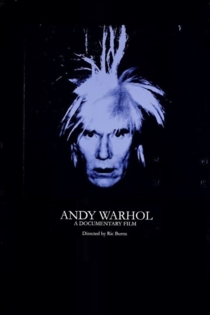
Ric Burns
2021New York: Order and Disorder (1825–1865)
Ric Burns
Ric Burns (brother of the famed documentarian Ken Burns) presents an exhaustive history of New York City from the settling of the area by the Dutch to the attack by terrorists nearly 400 years later. Told in a sentimental tone, Burns weaves a lyrical tale of the great metropolis that encompasses not only the city's streets, but also that of the history of America. Though around fourteen hours in length, this epic documentary presents a thoughtful, entertaining look at our relatively young country. This second installment finds the city as the largest port in the country. Waves of Irish and German immigrants flood into the city between 1825 and 1865 only to find that New York is not so welcoming to immigrants. Frederick Law Olmsted and Calvert Vaux shape the city with their design for Central Park but social unrest still ran high for the working classes, coming to a climax with the draft riots of 1863.
New York: Order and Disorder (1825–1865)

New York: The Country And The City (1609-1825)
Ric Burns
Ric Burns (brother of the famed documentarian Ken Burns) presents an exhaustive history of New York City from the settling of the area by the Dutch to the attack by terrorists nearly 400 years later. Told in a sentimental tone, Burns weaves a lyrical tale of the great metropolis that encompasses not only the city's streets, but also that of the history of America. Though around fourteen hours in length, this epic documentary presents a thoughtful, entertaining look at our relatively young country. The first installment of the series begins with the founding of New Amsterdam, a Dutch trading post. The city starts to take shape as New Amsterdam becomes British New York. By the Revolutionary War, the city becomes the site for several key battles.
New York: The Country And The City (1609-1825)

New York: Sunshine and Shadow (1865–1898)
Ric Burns
Ric Burns (brother of the famed documentarian Ken Burns) presents an exhaustive history of New York City from the settling of the area by the Dutch to the attack by terrorists nearly 400 years later. Told in a sentimental tone, Burns weaves a lyrical tale of the great metropolis that encompasses not only the city's streets, but also that of the history of America. Though around fourteen hours in length, this epic documentary presents a thoughtful, entertaining look at our relatively young country. This installment covers The Gilded Age following the Civil War which saw the rise of the robber barons and the schism between wealth and poverty widen dramatically. The political life of the city, exemplified by William M. Tweed and Tammany Hall descended into total corruption. As the turn of the century dawned, New York City annexes Brooklyn, Queens and Staten Island.
New York: Sunshine and Shadow (1865–1898)

The Donner Party
Ric Burns
J.D. Cannon, Timothy Hutton
Doomed attempt to get to California in 1846. More than just a riveting tale of death, endurance and survival. The Donner Party's nightmarish journey penetrated to the very heart of the American Dream at a crucial phase of the nation's "manifest destiny." Touching some of the most powerful social, economic and political currents of the time, this extraordinary narrative remains one of the most compelling and enduring episodes to come out of the West.
The Donner Party
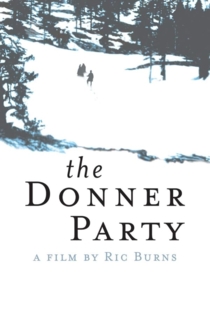
New York: The City and the World
Ric Burns
Episode Seven of the New York: A Documentary. In the aftermath of World War II, southern African-Americans moved north and Puerto Rican immigrants poured into the city, a trend which would continue for the next thirty years. Robert Moses waged a campaign of urban renewal, including adding highways to the city, hastening white flight to the suburbs. The destruction of the old Penn Station in 1963 and the protests against Moses's plans for the Lower Manhattan Expressway led to the creation of the New York City Landmarks Preservation Commission, ensuring the survival of New York's most architecturally important buildings and neighborhoods. Social and financial crises in the 1960s and 1970s took a toll on the city, but New York's revival since the 1970s has been enduring.
New York: The City and the World

Into the Deep: America, Whaling & The World
Ric Burns
Willem Dafoe, Robert Sean Leonard
Examine the American whaling industry from its 17th-century origins in drift and shore whaling off the coast of New England and Cape Cod, through the golden age of deep ocean whaling, the tragedy of the Essex, and the career of Moby Dick's Herman Melville, and on to its demise in the decades following the American Civil War.
Into the Deep: America, Whaling & The World
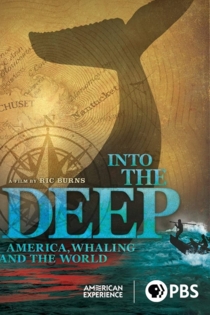
Coney Island
Ric Burns
Philip Bosco, Al Lewis
Before there was Disneyland, there was Coney Island. By the turn of the century, this tiny piece of New York real estate was internationally famous. On summer Sundays, three great pleasure domes--Steeplechase, Luna Park and Dreamland--competed for the patronage of a half-million people. By day it was the world's most amazing amusement park, by night, an electric "Eden".
Coney Island
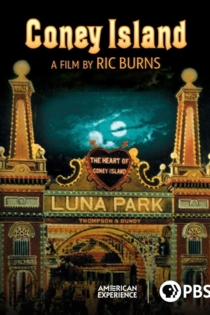
The Chinese Exclusion Act
Ric Burns, Li-Shin Yu
Hoon Lee, Joel de la Fuente
A sweeping chronicle of the entire exclusion era - the latter part of the 1800s, when anti-Chinese agitation led to federal laws targeting Chinese abroad and those already in the country. Go far beyond the legislation with the survival and growth of Chinese American communities in the face of prejudice and outright violence, the “paper” sons and daughters who emigrated despite the seemingly impassable barriers, and the legal challenges that produced some of the most momentous decisions in Supreme Court history.
The Chinese Exclusion Act
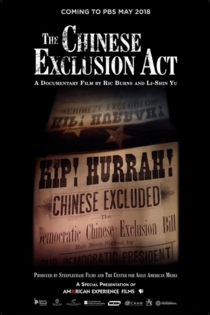
Oliver Sacks: His Own Life
Ric Burns
Oliver Sacks, Atul Gawande
An exploration of the life and work of the legendary neurologist and storyteller, as he shares intimate details of his battles with drug addiction, homophobia, and a medical establishment that accepted his work only decades after the fact. Sacks was a fearless explorer of unknown mental worlds who helped redefine our understanding of the brain and mind, the diversity of human experience, and our shared humanity.
Oliver Sacks: His Own Life
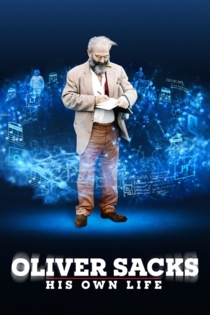
The Pilgrims
Ric Burns
Artemus Cragg, Calypso Cragg
Arguably one of the most fateful and resonant events of the last half millennium, the Pilgrims journey west across the Atlantic in the early 17th century is a seminal, if often misunderstood episode of American and world history. The Pilgrims explores the forces, circumstances, personalities and events that converged to exile the English group in Holland and eventually propel their crossing to the New World; a story universally familiar in broad outline, but almost entirely unfamiliar to a general audience in its rich and compelling historical actuality. Includes the real history of the "first thanksgiving".
The Pilgrims
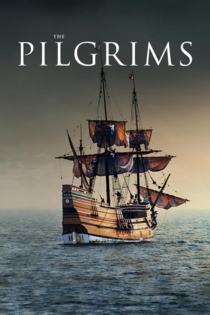
Driving While Black: Race, Space and Mobility in America
Gretchen Sorin, Ric Burns
Eric Avila, Tamara Banks
Discover how the advent of the automobile brought new mobility and freedom for African Americans but also exposed them to discrimination and deadly violence, and how that history resonates today.
Driving While Black: Race, Space and Mobility in America
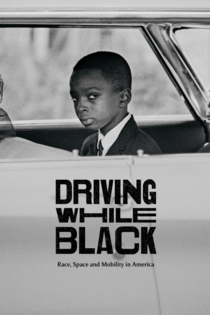
Ansel Adams: A Documentary Film
Ric Burns
David Ogden Stiers
The timeless photographs of Ansel Adams have made him one of the most recognized and admired names in art. This intimate look at the man and his work details his position as a staunch environmentalist and how his art reflected his strong worldview. David Ogden Stiers narrates this profile produced for the PBS series "American Experience," which was directed by Emmy-winning documentarian Ric Burns.
Ansel Adams
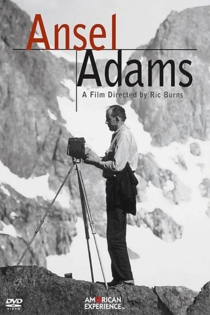
Enquiring Minds: The Untold Story of the Man Behind the National Enquirer
Ric Burns
Chronicle of publisher Gene Pope Jr.'s celebrity gossip and scandal fused vision, which became The National Enquirer, America's most notorious tabloid.
Enquiring Minds: The Untold Story of the Man Behind the National Enquirer


